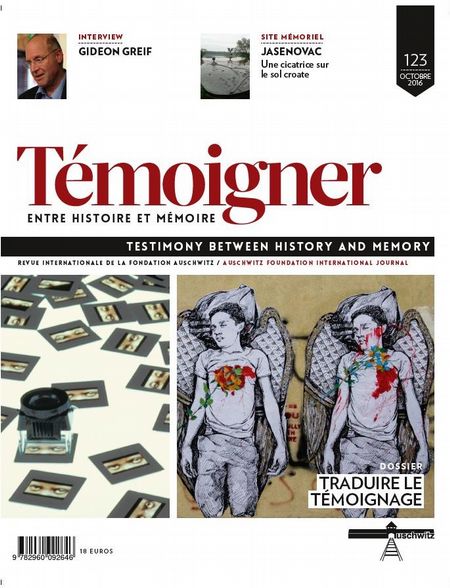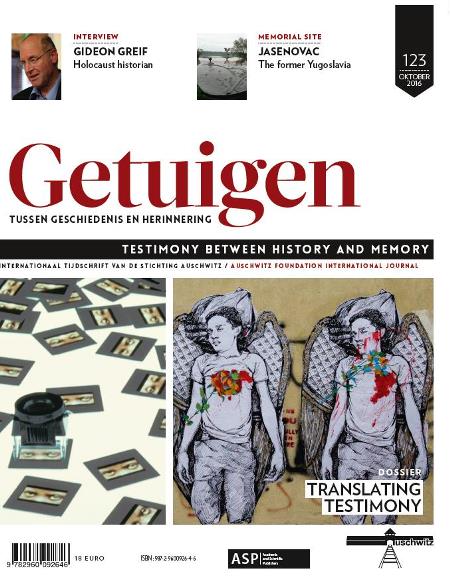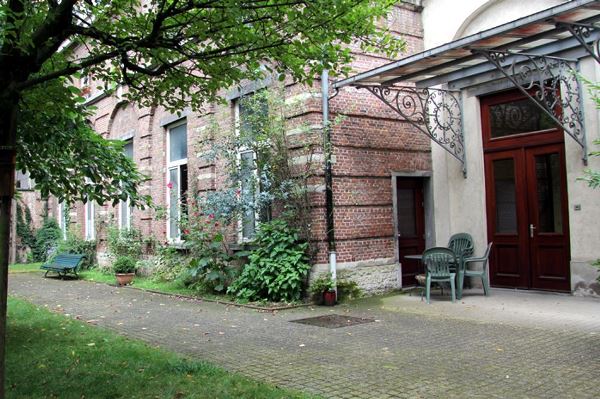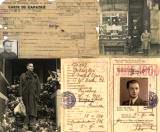

Translating Memory
Presentation of the dossier: What is the relationship between testimony, defined as a more or less ritualized firstperson account of political violence, and translation? Correspondingly, how does the translator position herself towards the witness? Can the translator be, or become, a witness? How, when and why are testimonies translated? Which linguistic and discursive strategies do translators resort to when faced with ethically challenging texts? Which role do they play exactly in the transmission of the historical knowledge, cultural values or social critique conveyed by the testimony? Does translation weaken or rather reinforce the relevance and impact of the original statement? How important is translation in literary, political and institutional settings? Do these specific settings determine translation practice in significant ways? To which extent can subsequent processes of transcription, editing, translation and archiving affect the source text? And how accurate are the boundaries we draw to distinguish witnessing from translating, documentary from literary testimony, the original from its translation? These are the main questions we intend to explore in our dossier.
Some of our projects
Contact
Auschwitz Foundation – Remembrance of Auschwitz
Rue aux Laines 17 box 50 – B-1000 Brussels +32 (0)2 512 79 98
+32 (0)2 512 79 98 info@auschwitz.be
info@auschwitz.be
BCE/KBO Auschwitz Foundation: 0876787354
BCE/KBO Remembrance of Auschwitz: 0420667323
Office open from Monday to Friday 9:30am to 4:30pm.
Visit only by appointment.
![]()
![]()
![]()
![]()
![]()
Become a member
To become a member of Remembrance of Auschwitz ASBL, please contact us and transfer the sum of €50.00 to our account IBAN: BE55 3100 7805 1744 – BIC: BBRUBEBB with the communication: ‘Membership fee 2025’. The membership includes two issues of 2025 of our scientific journal.
DONATIONS
Donations of €40.00 or more (in one or more instalments) qualify for tax exemption for Belgian taxpayers.
In communication, please specify that it is a ‘Donation’ and mention your National Number which is required since 2024 to benefit from the tax exemption.
Subscribe
Error : Please select some lists in your AcyMailing module configuration for the field "Automatically subscribe to" and make sure the selected lists are enabled










 The Auschwitz Foundation was founded in 1980 by Paul Halter, an Auschwitz survivor. Replacing the Amicale Belge des Ex-Prisonniers politiques d’Auschwitz-Birkenau Camps et Prisons de Silésie, the primary objective of the Auschwitz Foundation is to study the history and memory of the victims of the Holocaust and the Nazi terror in a sustainable and systematic way. The transmission of memory and the preservation of archives concerning these events complete this goal.
The Auschwitz Foundation was founded in 1980 by Paul Halter, an Auschwitz survivor. Replacing the Amicale Belge des Ex-Prisonniers politiques d’Auschwitz-Birkenau Camps et Prisons de Silésie, the primary objective of the Auschwitz Foundation is to study the history and memory of the victims of the Holocaust and the Nazi terror in a sustainable and systematic way. The transmission of memory and the preservation of archives concerning these events complete this goal.





